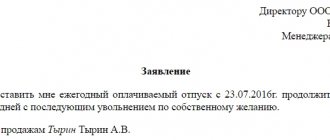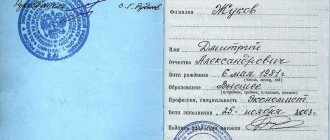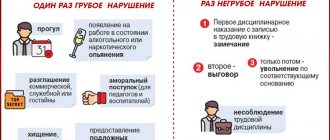What it is?
Continuous experience is a set of years during which a person worked continuously for one employer and at other enterprises (provided that the person complies with the “downtime” periods established by generally accepted law).
Accordingly, in certain circumstances, in the event of voluntary termination, it is advisable to comply with the terms of continuity of employment. The concept of “continuous service” first appeared in 1973.
Previously, permanent employment and active work at the same enterprise were important and were enshrined at the legislative level. Continuity of service had a positive effect on the calculation of pension payments.
This was the case until 2007, when the law “On Compulsory Social Insurance” came into force. However, in 2010, the adopted law was repealed, which caused a lot of disagreements and disputes that continue to this day.
Why is it needed?
So, we figured out how to calculate continuous work experience. In the end, the question arises: “What does it mean now, since this term was relevant in the Soviet era?” As practice shows, this factor has practically no significance.
For Russians, the total length of service is much more important, since it affects the size of the future pension. The main thing is that the employment must be official. The total length of service is also accrued to citizens conducting entrepreneurial activities.
Continuous experience is a kind of relic of the past. But sometimes employers pay attention to him. A potential employer, after a detailed study of your work record, may ask why you left your previous organization. However, this factor affects the amount of disability benefits.
Some Russians are inclined to believe that in the near future, continuous service will again be of great importance and will affect the size of the pension and will make it possible to receive various subsidies and social benefits. In reality, this is far from true, since this information is not officially confirmed.
Is there a benefit to continuity of employment?
Despite frequent and numerous changes and amendments to the legislative framework, continuous work experience is still considered an advantage for the employee.
Compared to people who frequently change places of employment, continuous work at the same enterprise gives the employee the following advantages:
- the possibility of receiving bonuses for long-term continuous professional activity in government agencies;
- increase in the amount of social benefits (in proportion to the number of years of service).
If a person has reached retirement age and has the right to resign from his position at his own request if he has continuous experience at the same enterprise, he can take advantage of additional vacation days, an increased bonus and other preferences that, in the opinion of the employer, will be appropriate.
The following points should also be taken into account:
- if an employee changes place of employment more than once a year, the length of service is considered interrupted;
- if dismissal occurs not at will, but as a disciplinary sanction, in accordance with the requirements of the Labor Code of the Russian Federation, the length of service is considered interrupted;
- Pregnancy, childbirth and maternity leave do not interrupt permanent work experience.
Experience: definition
Work experience is the period of time during which a citizen works or carries out various types of activities. This concept applies to cases of official employment or business activities. This indicator is directly related to the calculation of pensions, is required to receive various compensations and guarantees provided by the Government, and is calculated in the manner established by law. The work book is a document confirming the existence of work experience.
Work experience is divided into several types:
- General, including all years of work of a citizen.
- Special, intended for persons occupying certain positions.
- Continuous.
How many days are not interrupted upon dismissal?
As such, the concept of “continuous work experience” does not exist today. The algorithm for calculating work experience has completely changed since 2007. Work experience is considered interrupted if a person changes jobs more than once a year.
Moreover, the length of service will be considered uninterrupted for 3 weeks if the employee quit of his own free will and during this time period got a job in another organization. If employees were dismissed due to staff reduction, the grace period during which the service will not be interrupted will be 3 months.
If the dismissal occurred by agreement of the parties, the employee will be given one month to find a new place of work and find employment. If the established deadlines are exceeded, the length of service will be considered interrupted.
Whether the length of service is interrupted upon dismissal at one's own request or not can be judged by taking into account the person's compliance with the deadlines established by law in each individual case.
Motherhood
Continuous work experience is maintained if a woman goes on maternity leave. But is continuity maintained if the expectant mother goes on maternity leave? There are two completely opposite opinions on this matter.
Russian labor legislation does not contain information regarding maternity leave and continuous service. In essence, the length of service is maintained, since the woman remains employed, the nature of the work performed changes. On maternity leave, a woman deals only with family matters, but not with work duties. However, lawyers tend to believe that the length of service in this situation is not interrupted.
Is seniority lost if you leave your job on your own initiative?
There are no regulations in the legislation of the Russian Federation that provide for immediate interruption of seniority immediately after dismissal.
There are general rules according to which work experience is interrupted, including:
- the employee does not have a new job within three weeks after voluntary dismissal;
- absence of compelling reasons for missing work days.
In this case, the work experience is never interrupted if:
- the employee left the position due to the spouse moving to another place due to getting a new job;
- The employee resigned due to reaching retirement age.
At the same time, certain standards apply in the labor sphere.
Seniority and benefits will be maintained in the following cases:
- within 3 weeks (in case of dismissal of one’s own free will without compelling reasons);
- no more than one month (by agreement of the parties, if the employee has significant circumstances for dismissal: moving, caring for the sick, a sharp deterioration in health, and so on);
- three months (subject to staff reductions and mass layoffs of workers).
Accordingly, whether seniority is lost upon voluntary dismissal depends on the individual circumstances of each specific situation. Therefore, if an employee of an enterprise has doubts, it is better to consult with an experienced lawyer before dismissal.
Expert opinion
Irina Vasilyeva
Civil law expert
Medical experience is calculated by analogy with insurance. A person counts working days exactly as long as monetary contributions to the insurance fund are made.
In some cases, the employer enters into regulatory agreements with the subordinate. However, the power of such papers has long been lost. Therefore, in the event of proceedings, they will not have legislative weight for either side.
Definition of the concept
Long-term work activity that lasts continuously over a long period of time gives a specialist the opportunity in some situations to claim benefits compared to employees who have less overall experience without breaks.
Why do you need work experience?
- constant receipt of salary increases for work without interruptions in some state companies (in the healthcare sector, the penal system, etc.);
- increasing the amount of social benefits;
- receiving various bonuses, vacation days and similar benefits, which are determined by the employer.
In different cases, the concept of continuous work experience may differ, but, in general, it is based on the provisions prescribed in the legislative acts of the Russian Federation.
To determine the benefits for employees by the employer, continuous total length of service may have a different meaning, which must be indicated in the company’s internal documentation. It is described here whether a break in work activity affects the payment of sick leave (conditions for receiving sick leave in 2107) and whether this applies to the calculation of pensions.
Such documentation cannot conflict with Russian legislation or worsen the conditions for providing benefits for work without interruptions in comparison with the general standards governing the insurance work experience.
Long-term work without significant breaks allows specialists, in certain cases, to count on additional benefits compared to those who have a short period of continuous work.
These include:
- accrual of regular salary bonuses for continuous work in some state budgetary institutions - healthcare, organizations of the penitentiary system;
- increase in the amount of social payments when calculating for the period up to 2007;
- receiving bonuses, additional leaves and other material and non-material benefits established by the employer for length of service.
For different purposes, the definition of continuous working period may differ slightly. In general cases, it stems from the provisions of legislative normative acts of the Russian Federation, although it is not directly indicated there.
These acts cannot contradict the law or worsen the conditions for receiving benefits for continuous work in comparison with its norms.
The least conflicting way to terminate an employment relationship is mutual consent. Read about the article under which dismissal occurs by agreement of the parties. How to dismiss due to the death of an employee? Instructions here.
In law
The interpretation of the law by experts states that the time spent working in the same company or with different employers in cases where actual breaks in activity are not considered as such from a legal point of view constitutes continuous professional experience.
Separate legislative acts clarify which actions, in addition to employment in a state or commercial company, are equated to labor activity and are included in continuous work experience on an equal basis with it.
These are considered:
- contract service in the armed forces of the Russian Federation;
- alternative civil service;
- work in internal affairs bodies;
- performing the duties of a deputy of the State Duma, a member of the Federation Council;
- work on a collective farm or cooperative;
- activities of a trade union worker in an elected position, etc.
In addition, the length of service includes full leave during pregnancy, childbirth and subsequent child care.
In some cases, alternative activities, due to their obligatory nature or special complexity, are included in the continuous work experience in a larger amount of time than actually worked. For example, 1 day of conscript service is equivalent to 2 days of standard work, 1 year of service in the police department is considered 1.5 years of service, etc.
The nuances of interruption
The nature of work in certain professional fields requires additional incentives from the state to increase the material interest and responsibility of employees for performing work that requires maximum care.
For citizens employed in these areas, a number of additional periods have been defined that are included in the length of service: time of training, retraining, advanced training, internship, internship, etc.
For people who get a job in these institutions, preferential periods for maintaining continuity of service are provided - from 2 to 6 months, depending on their qualifications and work experience. Details of the conditions, amount and procedure for incentive payments to these categories of employees, as well as a full list of benefits for maintaining continuous service, can be found in the relevant instructions, which is Appendix No. 4 to Order of the Federal Penitentiary Service No. 624 of November 13, 2008.
Grace periods
Some unscrupulous employers interrupt the service of employees with a corresponding note in the documents for any convenient reason.
It is important for workers to know the situations in which their work experience is not interrupted in accordance with the law, these include:
- postgraduate study, residency, or university, if the break between the period of study and employment does not exceed 3 months;
- absence of a seasonal employee from the workplace due to health reasons, subject to a previously signed employment agreement or contract;
- involving a person in forced labor (without imprisonment).
The Labor Code of the Russian Federation does not regulate the terms of retention of length of service upon dismissal at one's own request. However, practice shows that at the moment, to determine and calculate certain indicators, experts use a set of laws, norms and rules, some of which were used back in Soviet times.
Therefore, it is extremely difficult for ordinary people who do not have specialized knowledge to understand this issue.
If HR department employees for any reason refuse to provide assistance in solving problems and issues that have arisen, it makes sense to seek help from professional lawyers.
How to calculate length of service using a work book
You can calculate your continuous work experience using an online calculator. In this case, it is enough to enter the data in the appropriate fields, and the calculation will be performed automatically.
When making calculations using a regular calculator, you first need to calculate the working time at each enterprise and add up the periods if the break was of a legal duration or occurred for a good reason.
An example of calculating the continuous work experience of a specific employee.
| Company | Start of activity, date of employment | Contract termination date and reason | Continuous work experience |
| LLC "Klyuch" | 02.04.2015 | 07/01/2015, liquidation of the organization | 3 months |
| LLC "Kadr" | 05.09.2015 | 01/26/2017, at your own request | 1 year 7 months |
| LLC "Snast" | 11.02.2017 | 13.12.2019 | 2 years 5 months |
Preferential categories and terms for them
In some situations, employees of certain industries are forced to resign of their own free will: for them, the job search period has been extended, including:
- military personnel who are in the army under a contract (the employment period for such citizens is up to 1 year);
- veterans and military personnel who have served in the army for more than 25 years (do not have strict time limits for searching for a new job);
- government employees and State Duma deputies (must find a new job within 6 months from the date of dismissal).
As you can see, the process of dismissal and calculation of continuous service has a lot of nuances, ignorance of which can cause many problems. If any arise, you can get a comprehensive answer to your question by contacting a lawyer for help.
Consequences of a break
What are the risks of interrupting your work experience? Unless there is some justifiable reason on which to explain a break in continuous service of more than three months, there will then be a gap in the length of service. This means that an employee who does not find a job in a timely manner will lose the right to receive benefits until he manages to obtain a job and work in it for as long as necessary to restore continuous service after dismissal.
Continuity of work experience is relevant for employees who apply for benefits, receive bonuses and compensation.
The desire to necessarily maintain continuity of experience forces many people to first find a new job and make sure that they will be hired there, and only then write a letter of resignation on their own initiative.
A guarantee of getting a new job can be an officially issued letter from the employer, which indicates that he is ready to accept this employee by transfer from his previous place, which means that the working period will not be interrupted.
This document is provided to the employer at the time of dismissal, and in this case, the basis for termination of the employment relationship is the transfer of the employee to another workplace. This way, when moving to another job, not a single working day of a continuous period will be lost. You should carefully examine the conditions for determining after how many days the number of vacation days is interrupted.
Employees working in government agencies or departmental companies should be aware of how continuous service after leaving work is calculated, otherwise they may lose all benefits provided in accordance with the legal framework of a particular institution.
Pensions and benefits
Currently, the employee’s length of service without interruptions does not affect the amount of the pension, as well as the right to early retirement. Therefore, in connection with the assignment of a pension, the question: how to calculate continuous work experience is not worth it. An important role here is played by the period during which a person was registered in the pension insurance system, and the employer paid insurance contributions to the Pension Fund for him (the so-called insurance period).
There is currently no increased pension for working in one place for a long time. The main thing is that all payments in favor of the employee are official, and that the employer makes timely and full insurance contributions from them. If a person works in one place for a long time, but receives a dull salary, the deductions to his personal account in the Pension Fund of the Russian Federation are scanty. Therefore, such a future pensioner cannot count on a decent pension.
Tags: interruption, length of service, dismissal
« Previous entry










